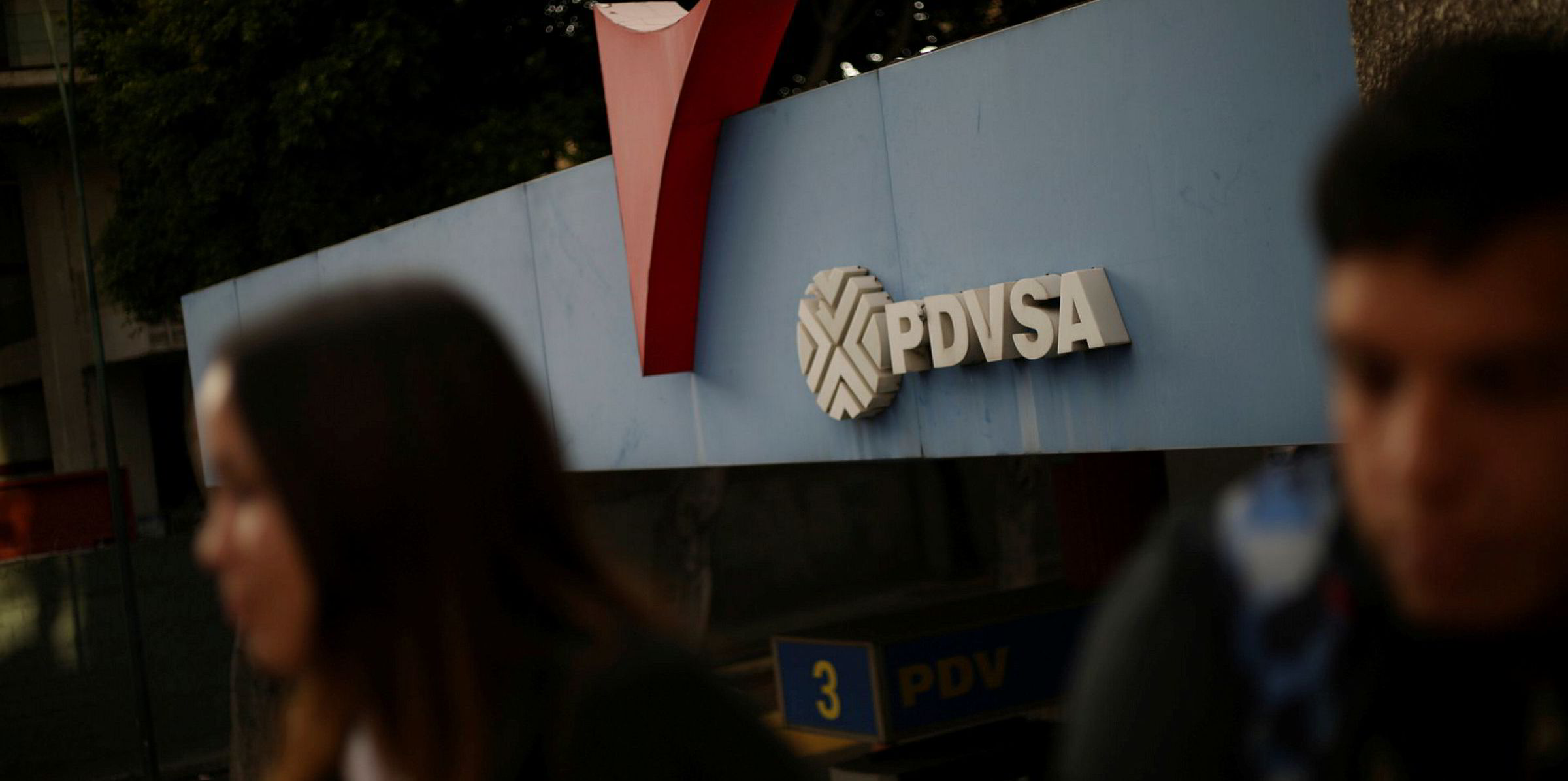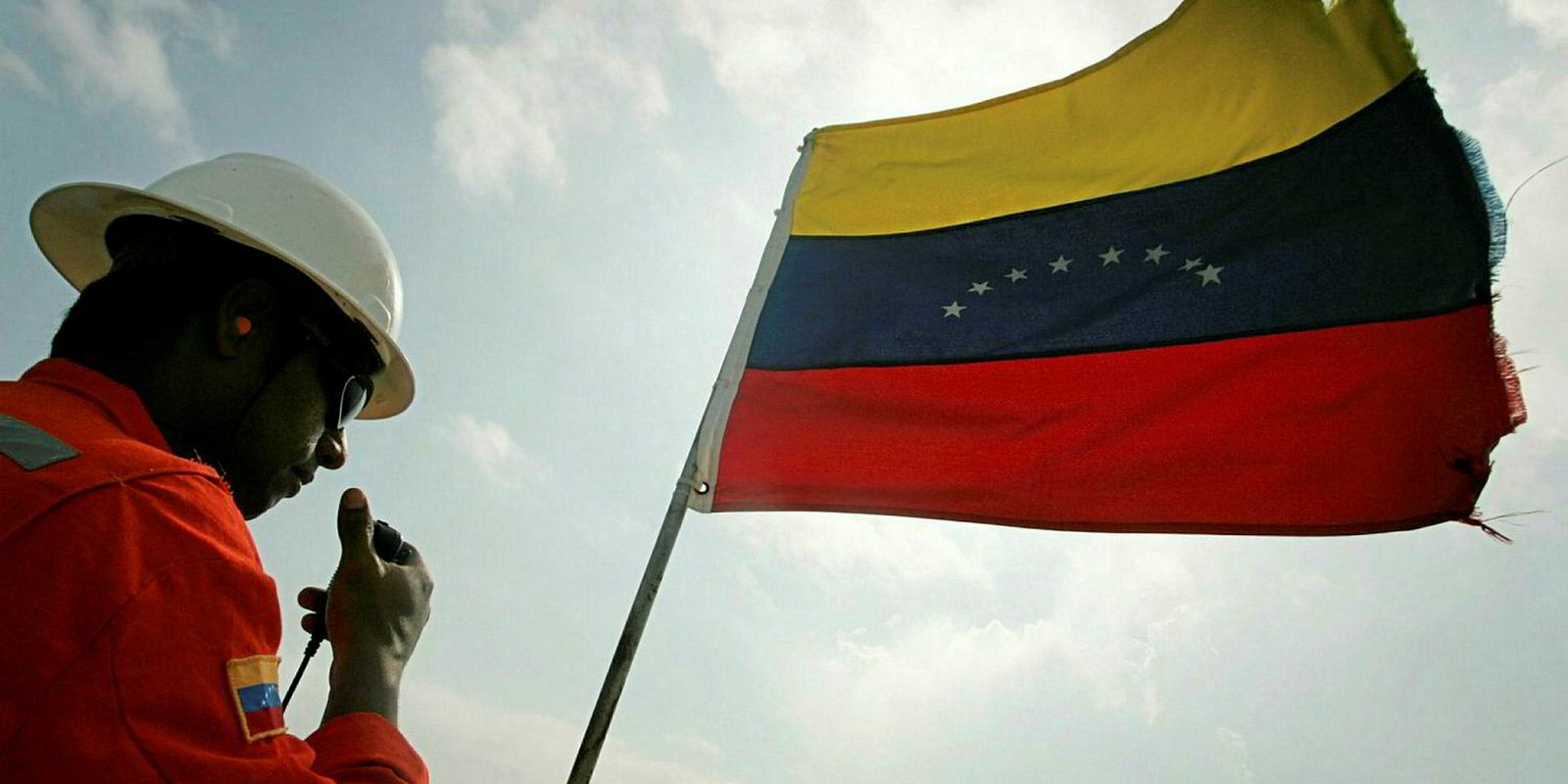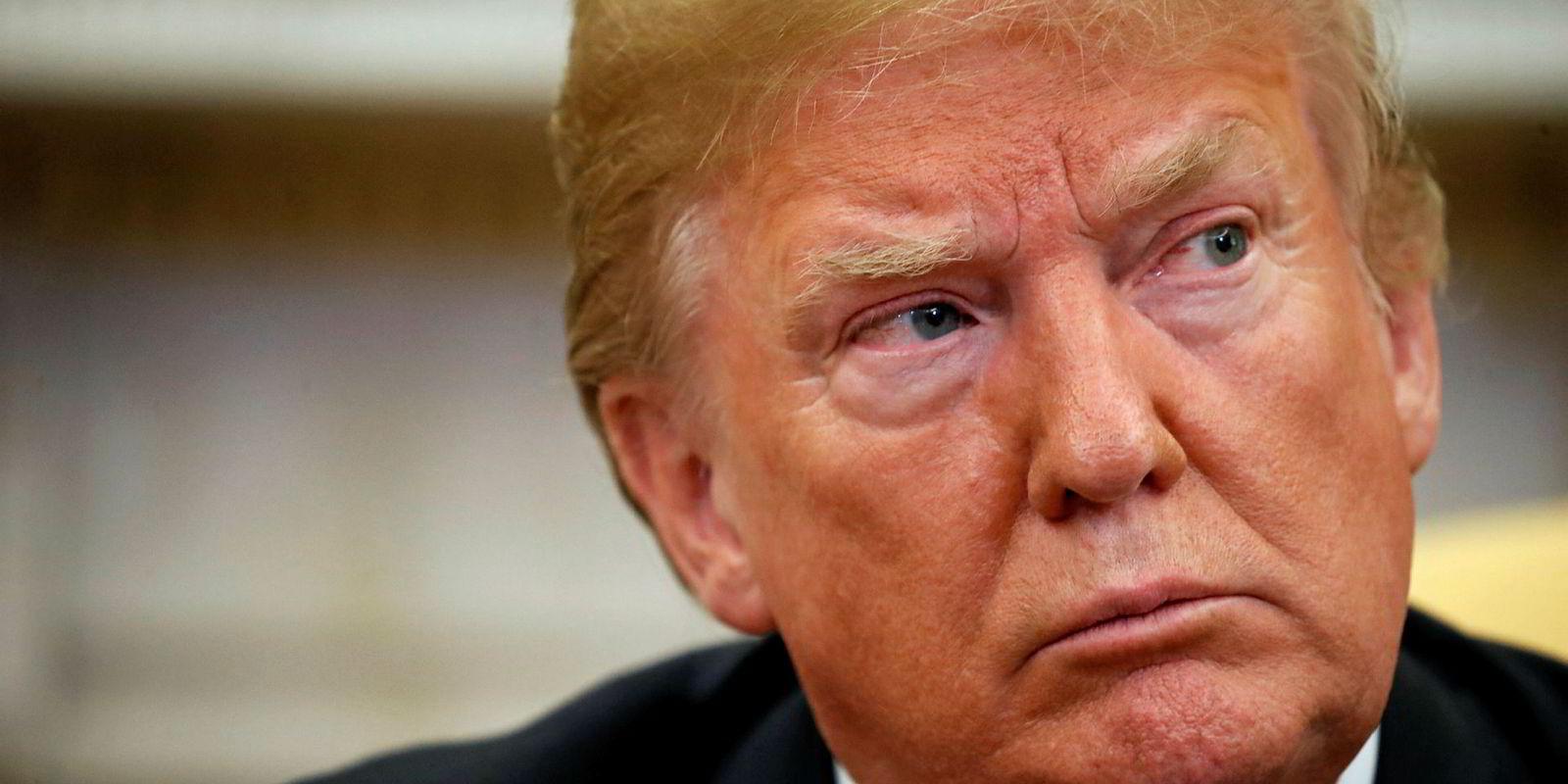As Venezuela slides deeper into political and economic crisis, tanker owners face the unenviable task of managing their trading risks associated with state oil company Petroleos de Venezuela (PDVSA).
The so-called Bolivarian Revolution, started by the late President Hugo Chavez, is entering a new and perhaps its final chapter after the US-backed opposition leader Juan Guaido announced he would take over as interim president amid hyperinflation and widespread food and fuel shortages.
Now, much of the attention is on how Washington will seek to remove socialist President Nicolas Maduro, who is backed by China and Russia.
Tanker trades in Venezuela are set for turmoil ahead, the severity of which will depend on how oil markets react to the new US sanctions on PDVSA this week.
Turmoil ahead
Until now, the US-Venezuela tanker trade has been booming despite the worsening bilateral relationship, supporting demand for MR and LR1 product tankers, aframaxes and suezmaxes in the Caribbean.
ClipperData suggests US imports of Venezuelan crude amounted to 503,000 barrels per day (bpd) in 2018, compared with a multi-year low of 367,000 bpd in December 2017.
PDVSA hiked exports to the US Gulf, where its Houston-based subsidiary, Citgo, was often on the receiving end, as shipments to China and other countries tend to be for debt repayments.
The resilient flows came as Venezuela’s total crude exports fell to 1.12 million bpd last year, 40% lower than the 2015 average. The drop resulted from falling production: output at the Opec member is estimated to have tumbled to 1.34 million bpd last year from 1.91 million bpd in 2017.
Meanwhile, PDVSA, which controls Venezuela’s oil industry, has struggled to maintain utilisation rates at its refineries due to depleting cash reserves. This has forced Venezuela to hike imports of naphtha, required as a diluent for its extra-heavy crude, as well as other light and middle distillates for domestic consumption.
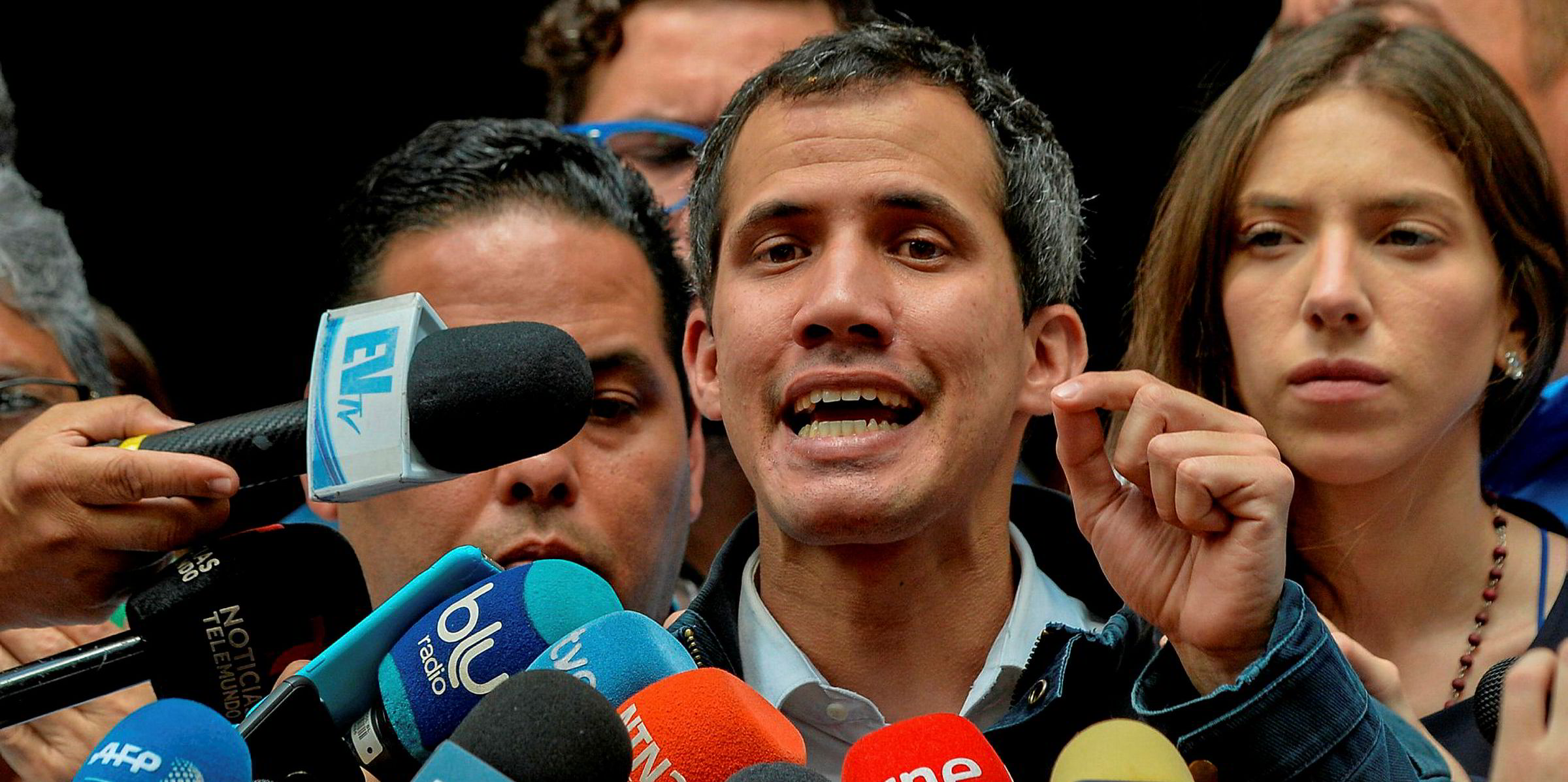
Data from VesselsValue shows 155 clean tanker shipments from the US to Venezuela in 2018, a jump from 95 in 2017.
Much of those crude and product tanker trades are now in jeopardy, with the White House imposing strict sanctions on PDVSA as the first step to choke off the Maduro regime. Aside from banning US exports of diluents to Venezuela immediately, the US Treasury Department has required US entities to wind down their trading with PDVSA in the coming months.
For US refiners, the more likely solution — at least in the short term — is to reduce crude runs. Similar grades to Venezuelan crude from Canada are in short supply due to production cuts.
It will be unfortunate if more tanker owners are drawn into the chaos in Venezuela. It will be even more unfortunate, though, if shipowners are forced to cut ties with PDVSA
Optimistic tanker owners would point to a potential boost in tonne miles, as Venezuela may raise crude exports to farther destinations such as China in exchange for petroleum products. However, some challenges will need to be overcome for that to happen.
Cash-strapped PDVSA
First, cash-strapped PDVSA would need to offer deeper discounts for its extra-heavy crude, without access to diluents from the US. China may also have to offer better trade terms, as its imports of Venezuelan crude tend not to be favoured by Maduro due to the lack of cash generation. China’s imports of Venezuelan crude dropped 28% year-on-year to 277,000 bpd in 2018, according to ClipperData.
Financially, US sanctions will also have an immediate impact on PDVSA’s operation. While US firms technically can continue imports of Venezuelan crude until 28 April, payments would be routed into blocked accounts in the US. Revenue of refiner Citgo, PDVSA’s remaining cash cow, also need to be put into a blocked account.
For tanker owners, that will likely mean heightened counterparty risks and more insurance costs. PDVSA is the ultimate backer of the Venezuelan tanker trade so, if its operation worsens,shipowners may find it harder to justify trading in the country, even if there can be associated risk premiums.
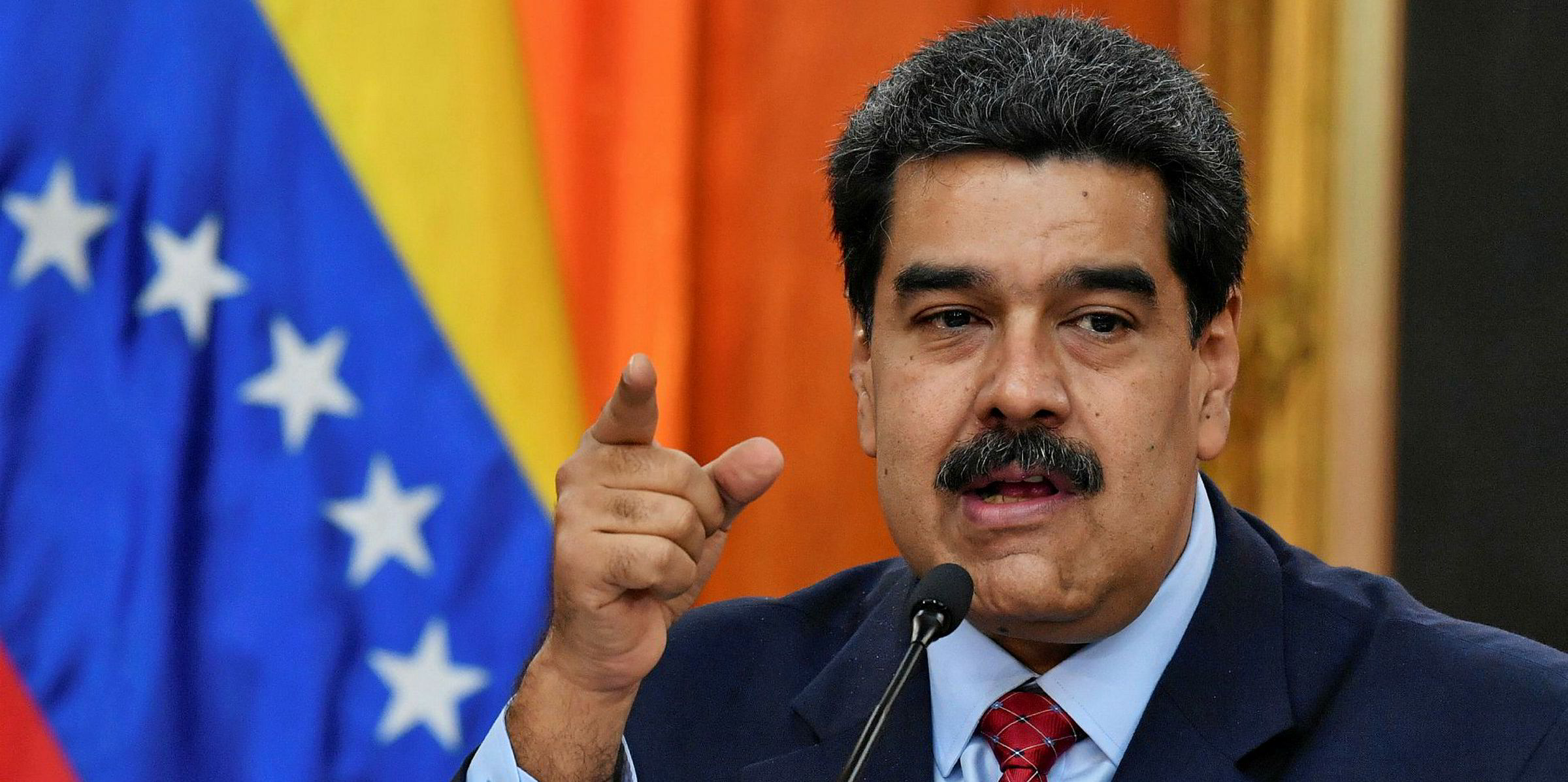
There may already have been some foretelling signs. Since December, PDVSA has arrested at least three tankers in the Venezuelan cabotage operation to force the discharge of cargoes onboard, on the argument that doing so is in the public interest.
Accusation of fraud
Those cargoes were held to enforce maritime liens as PDVSA owed unpaid time-charter hire for the ships. Such disputes are generally handled under English law, but PDVSA managed to use a local maritime code to order the discharge. Luis Cova Arria, a senior local lawyer, called this manoeuvre “a fraud”.
As Maduro and the opposition are preparing for a showdown in the coming weeks, such breakdowns in legal order may well continue.
It will be unfortunate if more tanker owners are drawn into the chaos in Venezuela.
It will be even more unfortunate, though, if shipowners are forced to cut ties with PDVSA, as the country’s poverty-hit population needs international trade to survive.
